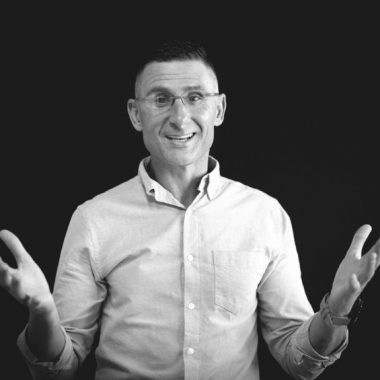Get in touch
Thanks for getting in touch

Bad Habits Lead To You
Research suggests that 70% of our behaviour is formed by habits, but, forming habits is a tricky business, whether it is giving up on a destructive habit like smoking or introducing a new one such as exercise, the science tells us to not look for fast results and instead focus on playing the long game.
We have all been in the situation where we’ve decided we’d like to make a change, so we set off on a new habit full of optimism and enthusiasm only to find it loses its appeal pretty quicky and derails leaving us feeling like we have failed.
There is much conflicting data on the length of time it takes to create a new habit. Whether it is a health or exercise related goal, an educational or professional adjustment, or a spiritual or psychological change you are looking to make, the time it takes to make these changes are hugely variable, and dependant on lots of factors. Factors include what habit you are looking to form, the environment you surround yourself with and your own character traits.
Latest research suggests that it can take anywhere from 19 days to 254 days to create a habit, it is also the case that we can complete some habits more easily than others, so if you find it hard to create one habit, it doesn’t mean that you will find it hard to create another habit.

One common mistake people make when trying to create change is that they overload themselves with too much too soon, setting themselves up for failure.
As the owner of a gym, The Spot Wellness Centre, I have now either run myself or coached others to run over 50 marathons, and believe it or not, running a marathon is not that tough, if the training is structured, thorough, and consistent, the run itself is in fact “the lap of honour” as one of my clients once described it. It’s all about the training, if that is right, then everything falls into place however, far too often I see runners overloading themselves with too much running quantity or distance too soon resulting in one of two outcomes, them finding the new program far too tough resulting in them telling themselves they cannot do it, losing motivation and ultimately giving up or overloading their body due to the increased load resulting in injury.
The 1% rule focuses on small incremental improvements every day which over a long period of time amounts to a huge pay-out, this can be seen clearly when we compare good habits vs bad habits, smoking a cigarette will light up your brain with increased levels of the neurotransmitter dopamine, often referred for to as the happy hormone, encouraging continued use even though it is detrimental to your overall health and well-being, whereas exercise releases smaller amounts of dopamine resulting in a lower level of rewards even though they are hugely beneficial to our mind and body.
When forming a new habit, this 1% Rule is important from the outset, habits are effectively daily goals, and when setting any goal on an individual level, we must apply the SMART goalsetting framework, making sure that the goal is achievable and realistic. I often hear people setting health related goals like
“Even though I haven’t worked out for over a year I’m gonna try and exercise five days a week for one hour a day”
“My diet is really poor, ate too many takeaways, crisps and chocolate, I’m going to stop all takeaways and eat healthily every day”
When we think about them in this way, this approach to forming a new habit is so absurd and fundamentally, not sustainable. It it’s important when deciding on any goal that we make sure that the endpoint is achievable and the steps along the way realistic, with all of the mini successes being vitally important towards ultimately reaching the goal and creating a reward system that helps with motivation.

The fact is that the longer we continue a new routine, the stronger the neural circuits are created within our brain and the easier it is to maintain this over a longer period, so keep going, keep reminding yourself that you are working on you for you, and that YOU CAN DO THIS!
Good habits are the foundation of success, any change of habits for the good will lead to a change in the quality of your life for the good.
Is there a right time to start a new habit?
You obviously need to want to make a change, the five stages of change state that we must go through a contemplation stage and identified an area that we wish to improve on, followed by the preparation stage, where we go through what we are trying to achieve in more detail and set a plan of action commitments towards achieving the goal, then we can take action, there may be times within our life when we feel better prepared mentally, physically to begin a new habit but ultimately, there is no right or wrong time, just don’t wait until all your ducks lined up in a row because it won’t happen, now is always better than never.

6 Tips to Help you on your way
1) Be Clear – the more clarity the better, it gives us less wriggle room to get out of things when it gets tough and leaves it less open to interpretation.
Be clear, be concise.
2) Break It Down – small manageable steps mapping the way from the start point to the final destination, this is your road map to success.
2) Schedule it – especially at the outset of any new habit, try to set aside designated times to fulfil the commitment, this can and will change as the habit becomes permanent. Anything that requires a lot of effort to act upon, try to schedule at the first part pf the day when motivation levels are at their highest.
3) Visualise it – visualisation is a powerful tool that can work wonders to prevent us dropping off from a new routine,visualise all the components of of an action prior to doing it, making sure we consider the difficult aspects of it, if it’s going to be tough, then visualise these moments and they will be mentally easier when they come.
4) Don’t Compensate – if you miss a day then that’s fine, accept it, it happens, get over it and start again the following day. Don’t try and catch up by doubling up the following day, it only adds pressure and decreases motivation.
5) Enjoy It – this you working on you, self-development is proven to make you feel better, if the graph of our life is going in the right direction and we feel we are improving, there is a proven link to happiness, so embrace the journey and remember to take a moment at the end enjoy your success, reminding yourself of what you went through to get there, not just the moment itself.
How do you know when we have formed a habit?
This is not easy to define but in essence a habit is something that we do every day as part of our life, so there are two ways to gauge this, a habit is formed when we are confident that we will incorporate the action into our daily life (where possible) every day, and secondly, when we can move away from a structured time and manage to fit the action in when it suits us, rather than when we set out and it is regimented, it becomes a lasting habit.
So, you see, habits are a big part of our lives, we are what we repeatedly do, excellence is a habit. If you want to change your habits, the more you know about them, the easier it will be for you to change them.
For advice on how to make the best of yourself nicky@nickyforster.com
